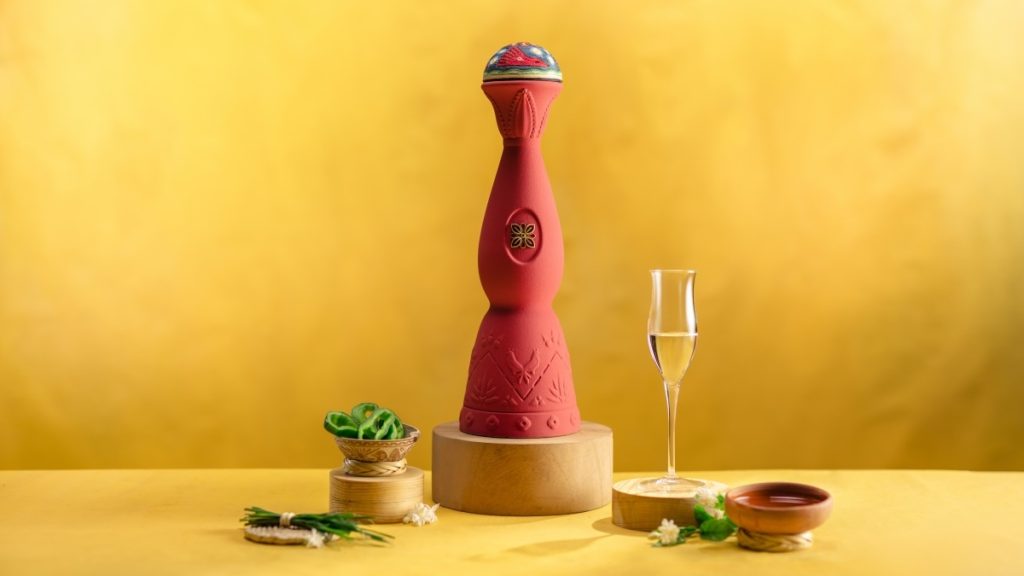Amarula, The Spirits Brand Dedicated to Protecting Native Elephants
This South African producer of liqueur and gin aims to help protect one of the planet’s most majestic creatures

Renowned for their massive size, powerful (and prehensile) trunks, and high level of intelligence and empathy, the African elephant has fascinated humans for eons, but despite being beloved these playful pachyderms are one of many species that continues to suffer from our rampant disregard for the natural world. Habitat fragmentation and the illegal ivory trade have caused both of Africa’s native species to plummet in population over the past few centuries, with the bush elephant listed as endangered and the forest elephant as critically endangered by the International Union for Conservation of Nature (IUCN). With the future of these majestic creatures resting in the hands of humanity, a wide array of organizations have agreed to work in tandem to preserve the earth’s remaining populations. Among them, South Africa’s Amarula supports the animals through a particularly fascinating food-focused alliance.

First launched in 1983 as a fruit-based spirit, Amarula has earned worldwide acclaim for their silky-smooth cream liqueur, a product that made its debut in the mid-1990s. While subsequent releases ranged from the barrel-aged Amarula Gold to their new Amarula African Gin (featuring indigenous botanicals including Ghanaian grains of paradise) each product shares one common ingredient: the marula fruit. Native to Sub-Saharan Africa, this bright green, kiwi-sized crop has been the main component within Amarula’s spirits since the very beginning—and it’s not just humans that have acquired a taste for the stuff.

During peak season, indigenous megafauna—including giraffes, rhinoceroses and elephants—arrive in droves to snack around the tops of the marula trees. For pachyderms in particular, even the bark and branches serve as a tasty snack, with some trees meeting an untimely demise after an overzealous elephant breaks off too big of a bite. While all Amarula products are made using the fruit, the company is careful to avoid a “tragedy of the commons” situation, with local gatherers holding off on the collection process until all nearby wildlife has had their fill. The business relies on the elephants from the very beginning of the harvest season until its final days, and this partnership offers mutual benefit for the pachyderms as well.

Beginning in 2008 with the launch of the Amarula Trust, the company has codified their dedication to the survival of Africa’s two native elephant species. For each liter of Amarula African Gin sold, £1 is donated to a prominent conservation initiative, with current partners ranging from the UK-based charity How Many Elephants to WildlifeDirect, an organization that seeks to protect the rich biodiversity of the African continent. While Amarula has teamed up with various wildlife-focused initiatives, HERD Trust serves as a tangible reminder of the plight of Africa’s elephants, offering a much-needed refuge to some of Southern Africa’s most vulnerable individuals.
The origins of HERD Trust can be traced back to one elephant in particular: Jabulani. Born in 1997, he was separated from his herd after getting stuck in a dam, ultimately becoming an orphan at just four months old. While this would typically spell doom for an infant elephant, Jabulani’s human rescuers brought him back to full health, and in 2002 he found new life with a group of fellow elephant refugees—a herd that was brought to Limpopo Province from Zimbabwe after dealing with human-elephant conflict. Today, HERD Trust is home to 16 elephants, with the most recent addition—an albino calf named Khanyisa—joining the herd in 2020 and becoming a new beacon of hope for the future of the African elephant.

Though elephants are one of the mightiest beasts found on the planet today, their physical strength hasn’t spared them from the threat of extinction, with poaching and habitat destruction contributing to population decline from Senegal to South Africa’s KwaZulu-Natal, but not all hope is lost for these majestic creatures. While there are many ways we can contribute to the cause, it can be also be as simple as buying a bottle of Amarula and toasting to the ongoing efforts to preserve the beloved African elephant.
Images courtesy of Amarula












